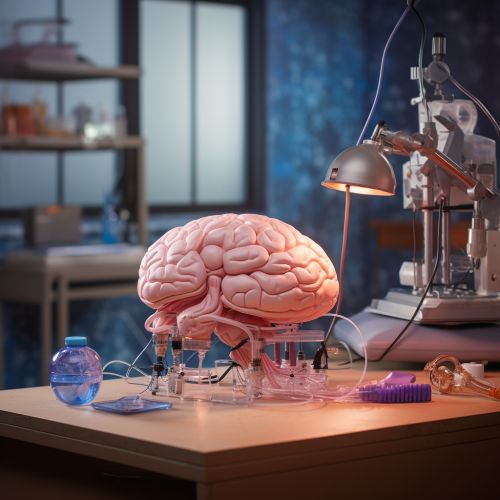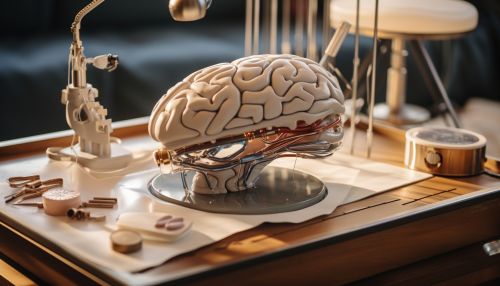Neurology
Overview
Neurology is a branch of medicine dealing with disorders of the nervous system. Neurology involves the diagnosis and treatment of all categories of conditions and disease involving the central and peripheral nervous systems, including their coverings, blood vessels, and all effector tissue, such as muscle.
History
The discipline of neurology has a long and storied history, with many notable figures and discoveries. The first recorded brain surgery, for example, dates back to 7000 BC. The ancient Egyptians also had a rudimentary understanding of the brain, which is documented in the Edwin Smith Papyrus.
Neurological Disorders
There are over 600 known neurological disorders. Some of the most common ones include Parkinson's disease, Alzheimer's disease, Epilepsy, and Stroke. These disorders can affect the central nervous system, the peripheral nervous system, the autonomic nervous system, and the muscular system.
Diagnostic Tests
Neurologists use a variety of diagnostic tests to help identify and treat neurological disorders. These include EEG, CT scans, MRI scans, and Lumbar punctures.
Treatment
Treatment for neurological disorders depends on the specific condition and can include everything from medication and physical therapy to surgery. For example, Parkinson's disease may be treated with a combination of medication and physical therapy, while a severe stroke may require emergency surgery.
Research
Research in neurology is a rapidly advancing field. Scientists are continually discovering new ways to diagnose, treat, and prevent neurological disorders. Current research topics include stem cell therapy, gene therapy, and the development of new medications.
See Also


